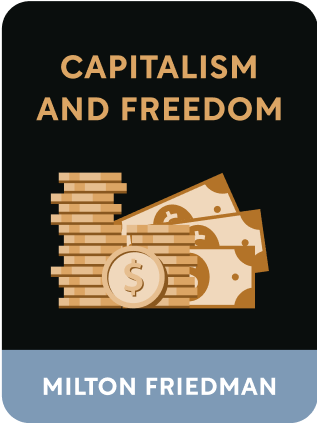

This article is an excerpt from the Shortform book guide to "Capitalism and Freedom" by Milton Friedman. Shortform has the world's best summaries and analyses of books you should be reading.
Like this article? Sign up for a free trial here .
What does Milton Friedman mean by “the social responsibility of business is to increase its profits?” How does this differ from other views of corporate social responsibility?
Corporate social responsibility is the idea that as large corporations with a lot of money, companies have a duty to uplift their communities and society as a whole. In Capitalism and Freedom, Milton Friedman argues that the social responsibility of business is to increase its profits.
Read more about Milton’s Friedman’s views and why the social responsibility of business is to increase its profits and nothing more.
The Injustice of “Corporate Social Responsibility”
We often hear the view expressed by public officials and activists that large private businesses like those we’ve been discussing in this chapter have a greater responsibility to their communities and societies beyond simply making money. This is the idea of “corporate social responsibility.” But corporate social responsibility is at odds with how private firms, especially those with shareholders, should behave in a free-market economy.
The role of the corporation in a free society is to maximize profits for its shareholders—period. The corporation and its officers (including the CEO) are hired by the shareholders to manage the firm’s day-to-day operations and to prioritize profit maximization with every decision they make.
After all, the shareholders are the owners of the corporation—expenditures are made with their money. Thus, when a CEO or board of directors decides to make a corporate gift, it is doing so with other people’s money. The shareholders did not choose to have their money spent this way.
This amounts to unelected corporate leaders imposing an arbitrary tax. This situation is compounded further by wrongheaded public policy, which awards corporations with generous tax deductions for such gifts—effectively subsidizing this unsanctioned use of shareholder wealth.
(Shortform note: Friedman expanded on this idea further in his famous 1970 article for the New York Times Magazine, “The Social Responsibility Of Business Is to Increase Its Profits.” Friedman’s ideas were highly influential in the shareholder value maximization model, which became popular with business leaders beginning in the 1980s. This model of business activity held that the most important measure of a company’s success was the financial returns to its shareholders.)
Price Ceilings and the Road to a Planned Economy: The Social Responsibility of Business Is to Increase Its Profits
Corporations are also pressured to demonstrate social responsibility by keeping prices of certain staple goods low so as to prevent inflation. But this is also ruinous in the long-run to a free economy.
If corporations cannot get the price they want for a particular good, they will simply produce less of it. The inevitable results of such price ceilings are shortages and the emergence of black markets. With such a state of chaos in the market for core commodities, governments would inevitably face enormous political pressure to step in and manage production and distribution directly. From there, it is a slippery slope to a planned economy and the end of voluntary exchange.

———End of Preview———
Like what you just read? Read the rest of the world's best book summary and analysis of Milton Friedman's "Capitalism and Freedom" at Shortform .
Here's what you'll find in our full Capitalism and Freedom summary :
- The key principles from Milton Friedman's Nobel Prize-winning book
- Why capitalism functions best when it is freed from government restraints
- How forced redistribution schemes are morally unjust






